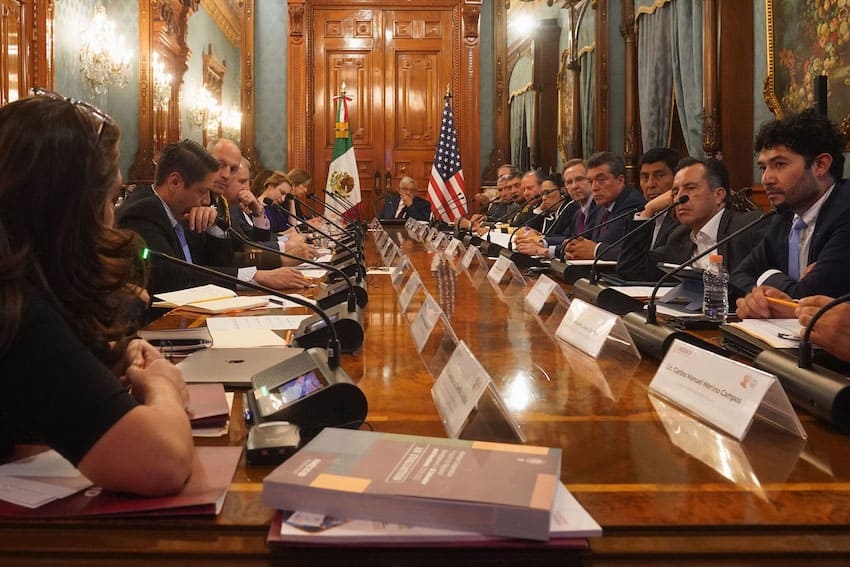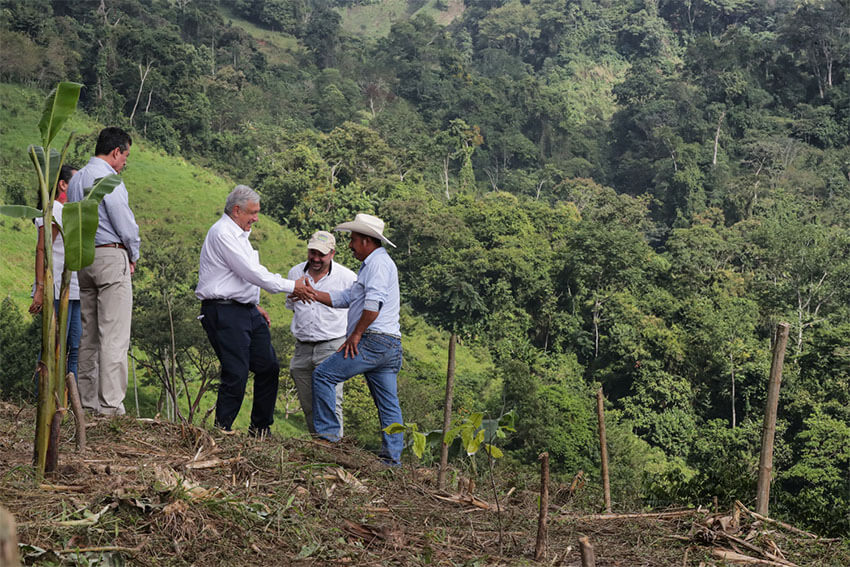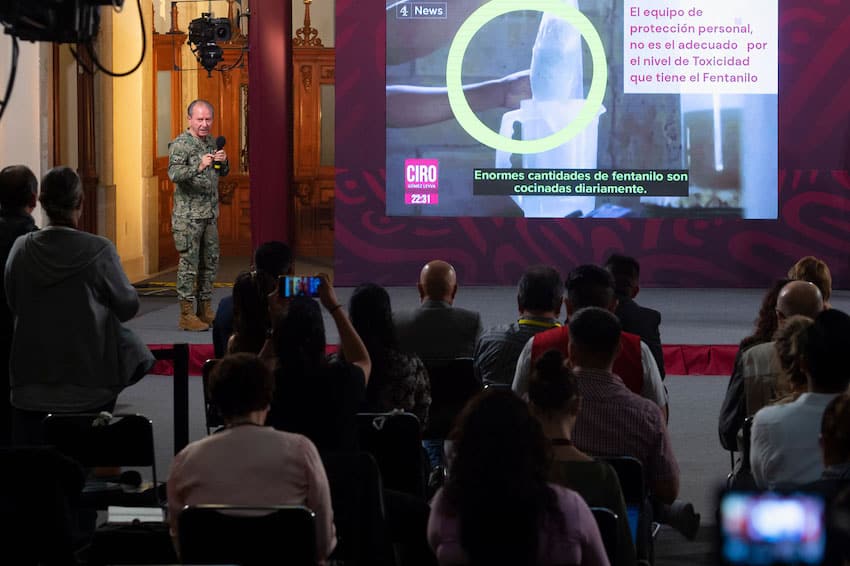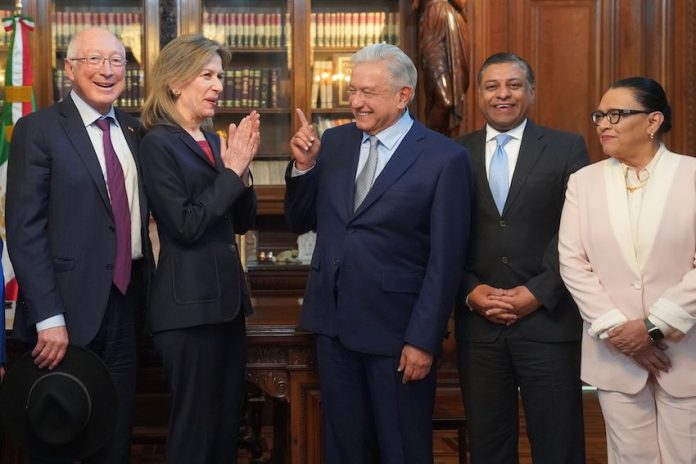President López Obrador met with top United States security officials on Tuesday to discuss migration, fentanyl and arms trafficking.
Homeland Security Adviser Elizabeth Sherwood-Randall, U.S. Ambassador to Mexico Ken Salazar and other U.S. officials attended the meeting in the National Palace, which lasted over two hours. Mexican officials in attendance included Foreign Affairs Minister Marcelo Ebrard, Public Security Minister Rosa Icela Rodríguez and the state governors of Oaxaca, Veracruz, Chiapas and Tabasco, among others.

Following the meeting, Ebrard said that migration and drug and arms trafficking are of the utmost importance for both countries, and require bilateral cooperation and coordination.
Both delegations highlighted the progress made surrounding migration, noting that attempted crossings have decreased following the lifting of Title 42, a pandemic-era rule that allowed for migrants to be immediately expelled without an asylum hearing, but did not come with the same penalties for re-entry as under Title 8, now in effect. Earlier this month, U.S. border authorities noted that there was a 50% reduction in border crossings since the policy’s expiration.
Regarding the number of migrants remaining in Mexico, Ebrard remarked, “This year, we have reached a figure of almost one million [migrants], an unprecedented figure. It is going very well.”
“President López Obrador has been an advocate for [migrants] since the start of his administration,” Ebrard said.

At the meeting, President López Obrador asked the U.S. to support his social programs in Central America, including the expansion of the program Sembrando Oportunidades (Sowing Opportunities), which intends to address the root causes of forced migration by improving the economic wellbeing of rural populations. The president stressed on his Twitter account that his administration handles migration humanely.
“With cooperation for the well-being and humanitarian treatment of migrants, we will advance the good neighbor policy,” he said.
The United States has been urging Mexico to curb the trafficking of fentanyl, the synthetic opioid that is causing record overdose deaths in the U.S. In April, officials from both countries agreed to escalate their efforts to combat the drug. Shortly after, the U.S. Drug Enforcement Administration (DEA) said that it was “laser-focused” on defeating the Sinaloa Cartel and the Jalisco New Generation Cartel, the groups the DEA considers responsible for producing and exporting fentanyl to the United States.
The Mexican delegation highlighted the Navy (Semar)’s newly-created national security laboratory, which will train canines to locate precursor chemicals in shipping containers. the detection of sophisticated drugs.

“On the issue of fentanyl, Mexico is progressing well. The Navy joined the National Security Laboratory, which is important because the crime is increasingly sophisticated. You can no longer find substances in their pure state. [Delinquents] are making complex combinations,” Ebrard said.
The two countries have also been discussing how to combat arms trafficking from the U.S. to Mexico. Ebrard reported that the U.S. officials stressed that President Biden is “making the flow of long arms very difficult.” Mexico has seized 26,000 long arm weapons from organized crime over the last two years, according to the website Debate.
United States and Mexican officials agreed to hold their next meeting in Washington.
“We have a very good relationship… The next step is to go to the U.S. for the next meeting,” Ebrard said. The next security meeting could be held as early as next month.
With reports from El Financiero, Infobae and Debate
